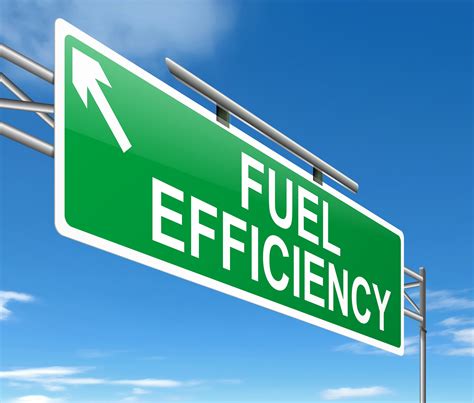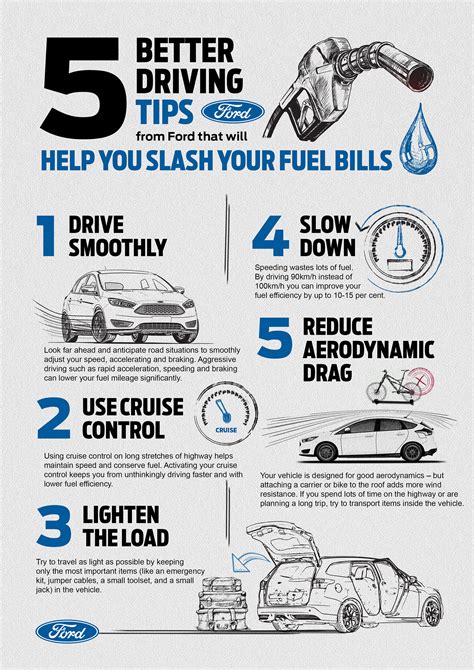In our fast-paced and interconnected world, the unrelenting surge in expenditures associated with energy resources remains an undeniable challenge for individuals and businesses alike. Effectively managing the costs surrounding the fuel required to power our transportation systems and heat our homes is an ever-present concern. In this insightful article, we explore a range of proactive approaches, innovative techniques, and astute measures that can be employed to navigate the ever-changing landscape of fuel expenses.
Understanding the dynamics that influence the prices of energy resources is imperative for devising successful strategies. With a broad understanding of the economic, geopolitical, and environmental factors at play, individuals and organizations can effectively anticipate and respond to fluctuations in fuel costs. Cultivating an awareness of these intricate connections empowers individuals and businesses to make informed decisions, enabling them to mitigate risks and maximize savings.
Embracing fuel-efficient technologies, the backbone of a sustainable future, is a vital aspect of managing fuel costs. Whether it is hybrid or electric vehicles, energy-efficient home appliances, or innovations in renewable energy sources, these technological advancements offer significant opportunities for reducing fuel consumption. By adopting these cutting-edge technologies, individuals and businesses can not only curb expenditure but also contribute to the much-needed preservation of our planet's valuable resources.
Maximize Efficiency: Tips for Reducing Fuel Consumption

In this section, we will explore various strategies and suggestions to enhance efficiency and minimize the amount of fuel consumed by vehicles without compromising on performance or convenience. By implementing these tips, you can save money and contribute to a greener environment.
- Optimize Your Driving Habits:
- Avoid aggressive acceleration and sudden braking, as these actions consume a significant amount of fuel. Instead, strive for smooth and gradual acceleration and deceleration.
- Maintain a steady speed when driving on highways, as consistent speeds promote fuel efficiency.
- Plan your trips efficiently to minimize unnecessary driving and select routes with fewer traffic congestions, if possible.
- Keep your vehicle well-maintained:
- Regularly check tire pressure to ensure it is at the recommended level. Underinflated tires can increase fuel consumption.
- Keep your vehicle clean and free from unnecessary weight, such as roof racks or heavy cargo. The lighter the vehicle, the less fuel it will consume.
- Ensure that your engine is properly tuned and the air filters are clean. A well-maintained engine operates more efficiently.
- Consider alternative transportation options:
- Explore carpooling or ridesharing opportunities to reduce the number of vehicles on the road.
- Incorporate public transportation, cycling, or walking into your routine for shorter trips when feasible.
- Technology assistance:
- Utilize smartphone apps or GPS systems to identify the most fuel-efficient routes.
- Consider using fuel-efficient vehicles such as hybrid or electric cars, which can significantly reduce fuel consumption and emissions.
By implementing these practical tips, you can maximize fuel efficiency and enjoy cost savings while minimizing your impact on the environment.
Implementing Techniques to Enhance Fuel Efficiency
Efficient driving practices can significantly contribute to reducing fuel consumption and costs. By adopting fuel-efficient driving techniques, individuals can optimize their vehicle's fuel economy and minimize their environmental impact. This section provides practical tips and recommendations on implementing these techniques into daily driving habits.
1. Maintain Proper Tire Pressure
Regularly check and ensure that your vehicle's tires are inflated to the recommended pressure level. Underinflated tires can increase fuel consumption due to increased rolling resistance, while overinflated tires can negatively affect handling and stability.
2. Avoid Excessive Idling
Minimize unnecessary idling by turning off the engine when waiting for extended periods, such as at railroad crossings or during lengthy traffic delays. Idling consumes fuel without any meaningful progress and adds unnecessary costs.
3. Accelerate Smoothly
Avoid aggressive acceleration and sudden braking, as these actions can decrease fuel efficiency. Gradually increasing speed and maintaining a steady pace helps optimize fuel consumption and reduces wear and tear on the vehicle.
4. Observe Speed Limits
Driving at excessive speeds not only endangers yourself and others but also significantly impacts fuel efficiency. Adhering to posted speed limits promotes safe driving and aids in conserving fuel.
5. Plan Routes Efficiently
Prioritize routes that minimize distance and congestion to reduce travel time and fuel consumption. Utilize navigation apps or devices to identify the most fuel-efficient routes and avoid unnecessary detours.
6. Reduce Wind Resistance
By removing unnecessary roof racks, cargo carriers, or bike racks when not in use, you can reduce wind resistance on your vehicle. Streamlined vehicles experience improved aerodynamics, resulting in enhanced fuel efficiency.
7. Use Cruise Control
On highways or open roads, engage the cruise control feature if available in your vehicle. It helps maintain a consistent speed, eliminating unnecessary acceleration and promoting fuel efficiency.
8. Avoid Excessive Weight
Regularly declutter your vehicle and remove any unnecessary weight, such as heavy items or unused equipment. Less weight translates to improved fuel efficiency and reduced fuel costs.
9. Regular Maintenance and Tune-ups
Ensure your vehicle receives routine maintenance, including oil changes, filter replacements, and tune-ups. A well-maintained engine runs more efficiently, conserving fuel and reducing emissions.
By implementing these fuel-efficient driving techniques into your daily commute, you can maximize fuel economy and contribute to a greener environment while saving money on fuel costs.
Maintaining Your Vehicle for Optimal Fuel Efficiency

Ensuring that your vehicle operates at its highest level of fuel efficiency is crucial for managing the overall costs associated with fuel consumption. By implementing a proactive approach to vehicle maintenance, you can significantly improve your vehicle's fuel economy, reduce fuel expenses, and contribute to a greener environment.
- Regularly check and replace air filters: Clogged air filters restrict the airflow to the engine, causing it to work harder and consume more fuel. By inspecting and replacing air filters at regular intervals, you can optimize the air-to-fuel mixture and improve fuel efficiency.
- Maintain proper tire pressure: Underinflated tires increase rolling resistance, making the engine work harder to move the vehicle. Regularly monitoring and maintaining the correct tire pressure not only enhances fuel efficiency but also improves safety and extends the lifespan of your tires.
- Stick to recommended oil changes: Using the manufacturer's recommended grade of motor oil and adhering to proper oil change intervals can improve engine performance and fuel efficiency. Fresh oil reduces friction, enabling the engine to run smoothly and consume less fuel.
- Keep the engine properly tuned: Regular tune-ups, including checking and replacing spark plugs, ignition timing adjustments, and addressing any engine-related issues, ensure that your vehicle operates at its optimal level. A well-maintained engine enhances overall fuel efficiency.
- Reduce unnecessary weight: Carrying excess weight in your vehicle can decrease fuel efficiency. Remove any unnecessary items from the trunk or interior to lighten the load and improve fuel economy.
- Use cruise control on highways: Maintaining a consistent speed using cruise control can help optimize fuel efficiency on long trips. By avoiding unnecessary acceleration and deceleration, you can reduce fuel consumption.
- Minimize idling time: Idling consumes fuel without any mileage gain. If you anticipate idling for more than a minute (except during traffic), consider turning off the engine to conserve fuel.
- Follow proper maintenance schedules: Adhering to the recommended maintenance schedules provided by your vehicle's manufacturer ensures that important components, such as the fuel system, emission system, and oxygen sensors, operate efficiently. Regular maintenance helps maximize fuel efficiency and extends the life of your vehicle.
By incorporating these vehicle maintenance strategies into your routine, you can optimize your vehicle's fuel efficiency, reduce fuel costs, and drive with confidence knowing that you are actively contributing to a more sustainable future.
Exploring Alternative Modes of Transportation
Discovering different ways to get around can help alleviate the impact of rising fuel costs on your budget. By considering alternative transportation options, you can reduce your dependency on traditional forms of travel and potentially save money in the long run.
Below are several alternative modes of transportation to consider:
- Carpooling: Sharing rides with colleagues, friends, or neighbors can help reduce fuel expenses and decrease the number of vehicles on the road.
- Public Transportation: Utilizing buses, trains, and trams not only reduces individual fuel costs but also contributes to reducing pollution and traffic congestion.
- Bicycling: Embracing the two-wheeled mode of transportation not only offers a cost-effective way to travel but also provides health and environmental benefits.
- Walking: For shorter distances, walking is an excellent option that eliminates fuel costs entirely while promoting physical activity.
- Electric Vehicles: Consider investing in an electric car or scooter, which can significantly reduce reliance on fossil fuels and help mitigate rising fuel prices.
Exploring and incorporating these alternative transportation options into your daily routine can not only save you money but also positively impact the environment by reducing greenhouse gas emissions. By diversifying your mode of travel, you can actively contribute to a more sustainable future.
FAQ
What are some effective strategies for managing fuel costs?
Some effective strategies for managing fuel costs include maintaining your vehicle properly, managing your driving habits, comparing gas prices, using fuel rewards programs, and considering alternative transportation options.
How can I maintain my vehicle properly to improve fuel efficiency?
To maintain your vehicle properly for better fuel efficiency, you should regularly check and replace air filters, maintain proper tire pressure, use the recommended motor oil, avoid excessive idling, and get regular tune-ups.
Are there any driving habits that can help save on fuel costs?
Yes, some driving habits that can help save on fuel costs include avoiding rapid acceleration and heavy braking, maintaining a steady speed, reducing air conditioning usage, and avoiding unnecessary trips.
How can I find the best gas prices in my area?
You can find the best gas prices in your area by using online gas price comparison websites, mobile apps, or by checking local gas stations' websites or social media pages.
What are the alternative transportation options that can help reduce fuel costs?
Alternative transportation options that can help reduce fuel costs include carpooling or ridesharing, using public transportation, walking or biking for shorter distances, or considering purchasing a fuel-efficient or electric vehicle.
How can I save money on gas?
There are several strategies you can follow to manage fuel costs and save money on gas. First, you can consider carpooling or using public transportation, which will reduce the amount of fuel you need for your commute. Another option is to keep your tires properly inflated and regularly maintain your vehicle to improve fuel efficiency. Additionally, you can compare gas prices at different stations and use apps or websites to find the cheapest prices in your area. Finally, adopting fuel-efficient driving habits, such as avoiding aggressive acceleration and maintaining a steady speed, can also help you save money on gas.



